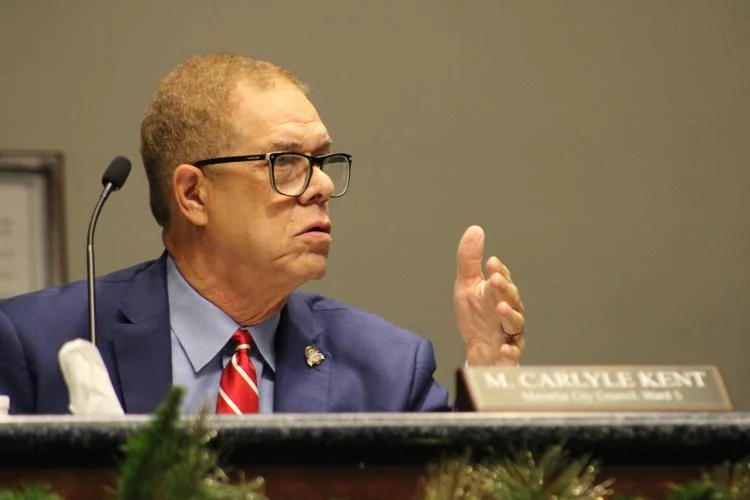An ordinary appointment to the Marietta Board of Lights and Water (BLW) has incited fervent discussions and allegations of “cronyism,” thereby illuminating concerns pertaining to the city’s leadership’s transparency and diversity.
A controversy ensued at a recent city council meeting when Councilman Andy Morris proposed Pete Waldrep, an executive director of the Marietta Housing Authority and a former Marietta councilman, for a position on the BLW. Nevertheless, Councilman Carlyle Kent expressed disapproval of the appointment of Waldrep, a white male in his seventies, citing the board’s lack of diversity. Kent urged for the nomination of Jesse Bonner Jr., a candidate with substantial community connections.
Others shared Kent’s apprehensions regarding diversity; former Marietta councilman Reggie Copeland and Cobb NAACP President Jeriene Bonner Willis both raised concerns regarding the board’s representation of Marietta’s diverse population. Due to the fact that only one member of the seven-member board is Black, the demographics of the city, where Blacks make up nearly one-third of the population, are not accurately reflected.
In spite of concerted efforts to solicit public input and evaluate a range of candidates, including Waldrep, the council ultimately decided to approve his appointment by a 6-1 vote. Critics expressed disapproval of this decision, contending that the selection process failed to adequately disclose information and genuinely strive for a diverse representation.
Certain individuals in the public commentary section speculated that the council may have premeditated the appointment, thereby undermining the credibility of the selection procedure. Tracy Stevenson, an applicant, accused the council of favoritism and characterized the procedure as a “sham.”
In light of accusations regarding favoritism and preconceived notions, Councilman Kent underscored the significance of impartial and all-encompassing procedures for reaching decisions. Kent, while recognising the intricacies of the BLW’s obligations, proposed that the examination of term limits for board members might be worthwhile in order to foster increased diversity and novel viewpoints in leadership roles.
The contentious nature of Waldrep’s appointment brings to the forefront more extensive concerns regarding representation and accountability within the governance frameworks of Marietta. In light of the city’s ongoing challenges pertaining to diversity, inclusion, and access, the council’s conduct will be subject to intense scrutiny from both community leaders and residents.
Read More News:
- Mets Win Series Finale Matchup Against Braves
- Introducing Our Adorable Pet of the Day, Kyle Kent!
- Chris Kirk, an alumnus of Etowah, rides a roller coaster in the Masters opening round
In the future, it is crucial that city leaders maintain transparency, diversity, and equitable representation as top priorities in every decision-making procedure. True reflection of the diverse population and effective resolution of citizen concerns in Marietta can be achieved solely through the cultivation of an atmosphere that promotes openness and inclusivity.

